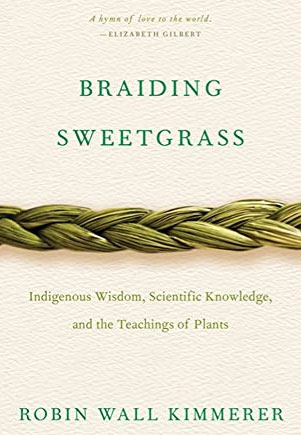These were taken over several rogation years from 2014
2024 Sun May 5
A Rogation Treat – OnBeing interview with author Robin Wall Kimmerer.

She is the author of the Braiding Sweetgrass. From Bookshop.org “As a member of the Citizen Potawatomi Nation, she embraces the notion that plants and animals are our oldest teachers. In Braiding Sweetgrass, Kimmerer brings these two lenses of knowledge together to take us on “a journey that is every bit as mythic as it is scientific, as sacred as it is historical, as clever as it is wise” (Elizabeth Gilbert).
“Drawing on her life as an indigenous scientist, and as a woman, Kimmerer shows how other living beings–asters and goldenrod, strawberries and squash, salamanders, algae, and sweetgrass–offer us gifts and lessons, even if we’ve forgotten how to hear their voices. In reflections that range from the creation of Turtle Island to the forces that threaten its flourishing today, she circles toward a central argument: that the awakening of ecological consciousness requires the acknowledgment and celebration of our reciprocal relationship with the rest of the living world. For only when we can hear the languages of other beings will we be capable of understanding the generosity of the earth, and learn to give our own gifts in return. “
Organic Suburbs- Rogation re-defined
Smithsonian in the May, 2015 issue writes about a new trend in planned living involving farm life. Housing is connected not to golf courses or lakes but to gardens.and farm land. Interconnectively is the key concept. In some developments, apartments and homes are wedged together to make use of limited space and encourage social interaction.
There are already dozens of agritopian developments and, fueled by the local-food movement. There is highly planned housing together with an environmental focus . Waste water, for example is filtered in a biological treatment system and reused for irrigation. There as much focus on providing bike and hiking paths as streets. Parks become common meeting grounds.

Serenbe is perhaps the country’s most popular and profitable “agritopia,” outside Atlanta. It tries to combine what it would term the “good life.” – arts, agriculture, education.
At Serenbe, there is a 25-acre organic farm. Plus there farmlands all of which produce enougth vegetables to supply a number of restaurants, a farmers’ market and a Community-Supported Agriculture program
Their website provides an attractive description “Year-round cultural events include outdoor theater from Serenbe Playhouse, culinary workshops and festivals, music events, films and lectures, boutique shopping, art galleries, a spa and trail riding, plus a robust Artist in Residence program featuring dinners and talks. “ Currently there are 400 homes
Links 1. Serenbe 2. Smithsonian article
Artists for Climate

Just in time for Rogation Sunday!
In 2021, TED Countdown launched a partnership with Fine Acts – a global creative studio for social impact – to kick off a series of SPRINTS, creative boot camps held at TEDx events worldwide.
The goal: Engage artists to envision a better future. In three years, this extraordinary collaboration has produced hundreds of inspiring works for The Climate Collection – a unique vault of open-license visuals.
They are here
Update on Snacks for Caroline County Public Schools
Based on information discussed at the February CERVE meeting regarding the need for snacks at the elementary schools in Caroline County, St Peter’s Vestry made a donation, along with many other churches, to raise $1268 to be spent on snacks for the three schools. Teachers at these schools have been individually providing snacks for their classrooms since many of the children cannot afford to bring a daily snack to school.
One of the CERVE members coordinated with personnel at the three county elementary schools, getting input about what snacks would be wanted. She then purchased juice boxes, fruit cups, apple sought and other healthy snacks and delivered snacks to the three schools. With the donations received, the schools will receive snacks through the rest of this school year. Needless to say, everyone is extremely grateful for this direct help for our Caroline County children.
CERVE connects us with emergency outreach in Caroline County

St Peter’s has been a long-time participant in CERVE, which stands for Caroline Emergency Relief through Volunteer efforts. Fred Pannell served as the Treasurer of CERVE for many years. Boyd Wisdom served as our representative until Elizabeth Heimbach took that job. St Peter’s representation will continue as various people attend the upcoming meetings. Deputy Trey Clifton represented us in March. Catherine Hicks attended in April. The following people have signed up for the next several months.
May 28—Johnny Davis
June 25—Elizabeth Heimbach
July 23—Linda Upshaw
September 14—Andrea Pogue
October 22—Larry Saylor
Consider representing St Peter’s and signing up for a meeting. This is a great place to find out how St Peter’s, with other churches, can help to meet various needs in the county. Find out about how the Department of Social Services, the Sheriff’s Department, the churches and other organizations in the county come together to meet emergency needs by providing emergency lodging and fuel assistance, and also help with utilities, rent, and prescription medicine
Anyone can join! Please consider donating to CERVE and make a difference in the lives of our most vulnerable residents. Here is our Givelify link
Julian of Norwich, May 8

May is a month of prayer with the National Day of Prayer and Thy Kingdom come in two weeks Not to be forgotten is Julian of Norwich who was one of the first women authors.
“Pray, even if you feel nothing, see nothing. For when you are dry, empty, sick or weak, at such a time is your prayer most pleasing to God, even though you may find little joy in it. This is true of all believing prayer.” Julian of Norwich
Julian of Norwich was a 14th century mystic and writer. Julian’s book, Revelations of Divine Love is based on a series of sixteen visions she received on the 8th of May 1373. That’s 651 years ago today May 8, 2024. She became one of the first known female writers and one of the first published writers.
We also know her by her famous quote “All shall be well, and all shall be well, and all manner of things shall be well.” We celebrate her day on May 8, 2023.
At the age of thirty, stricken by a grave illness and believed she was on her deathbed. She was living at the time of the Black Death. (Records indicate half the population died during the plaque). She hints that at this time she had nothing to live for and so she welcomed death.
The medical crisis passed, and she had a series of fifteen visions, or “showings,” in which she was led to contemplate the Passion of Christ. These brought her great peace and joy. In her “showings,” Christ revealed his bleeding and his dying as acts of unconditional love. Her concept of Christ changed over her life from a God of wrath to one warm and welcoming.
The experience transformed her life. She became an anchoress (one who lived a life prayer and contemplation), living in a small hut near to the church in Norwich, England where she devoted the rest of her life to prayer and contemplation of the meaning of her visions.”
It is worth pointing out that Julian of Norwich was not a hermit. Even though she spent more than forty years living in a small cell attached to a church, she had a window that looked out onto the busy city street of Norwich. From this window she offered spiritual guidance to her community. She kept tabs on neighborhood news and soothed broken hearts. She accepted loaves of fresh baked bread and shared honey from the hives she kept. She was simultaneously protected from the world and connected to her community.
There were no barriers for Julian with Christ. She talks of the “glorious mingling” of body and soul, matter and spirit. She insists on the marriage of nature and God, on panentheism as the very meaning of faith, and on the marriage of God and the human (for we, too, are part of nature): “between God and the human there is no between.”
Here is a podcast about her from Christianity Today – “In this episode of Prayer amid Pandemic, Amy Laura Hall, the author of Laughing at the Devil: Seeing the World with Julian of Norwich and a Christian ethics professor at Duke Divinity School, tell us why we know so little about Julian’s identity but why we still read her writings on the vision she received while sick today.”
